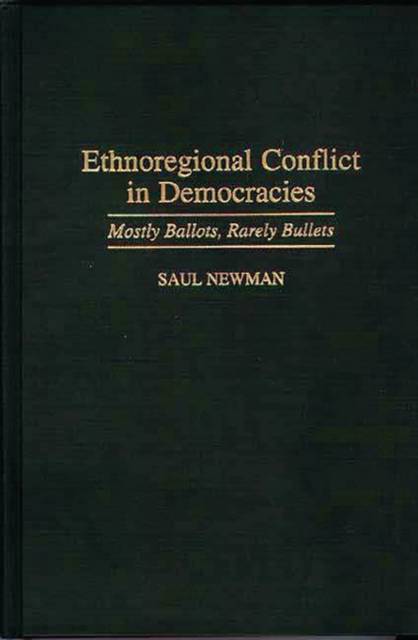
Bedankt voor het vertrouwen het afgelopen jaar! Om jou te bedanken bieden we GRATIS verzending (in België) aan op alles gedurende de hele maand januari.
- Afhalen na 1 uur in een winkel met voorraad
- In januari gratis thuislevering in België
- Ruim aanbod met 7 miljoen producten
Bedankt voor het vertrouwen het afgelopen jaar! Om jou te bedanken bieden we GRATIS verzending (in België) aan op alles gedurende de hele maand januari.
- Afhalen na 1 uur in een winkel met voorraad
- In januari gratis thuislevering in België
- Ruim aanbod met 7 miljoen producten
Zoeken
€ 161,45
+ 322 punten
Omschrijving
Most advanced industrial democracies have been successful in controlling ethnic political conflicts peacefully. This book examines ethnoregional conflicts in seven ethnoregions--in Scotland, Flanders, Wallonia, Brussels, Quebec, Northern Ireland, and the Basque region of Spain--to explain what mactors determine electoral support for ethnoregional parties, why in some cases electoral conflict has co-existed with ethnic violence, and why there appears to be an inverse relationship between electoral success and policy success among many ethnoregional parties. As ethnic conflicts--peaceful and violent--continue to rage around the world, this important new study merits the attention of scholars and students in comparative politics and ethnic studies.
Specificaties
Betrokkenen
- Auteur(s):
- Uitgeverij:
Inhoud
- Aantal bladzijden:
- 296
- Taal:
- Engels
- Reeks:
Eigenschappen
- Productcode (EAN):
- 9780313300394
- Verschijningsdatum:
- 16/05/1996
- Uitvoering:
- Hardcover
- Formaat:
- Genaaid
- Afmetingen:
- 156 mm x 234 mm
- Gewicht:
- 589 g

Alleen bij Standaard Boekhandel
+ 322 punten op je klantenkaart van Standaard Boekhandel
Beoordelingen
We publiceren alleen reviews die voldoen aan de voorwaarden voor reviews. Bekijk onze voorwaarden voor reviews.









